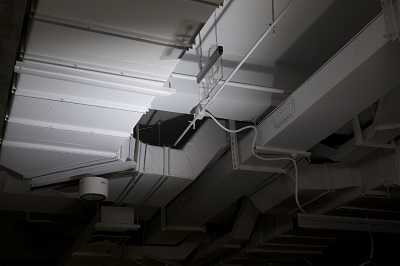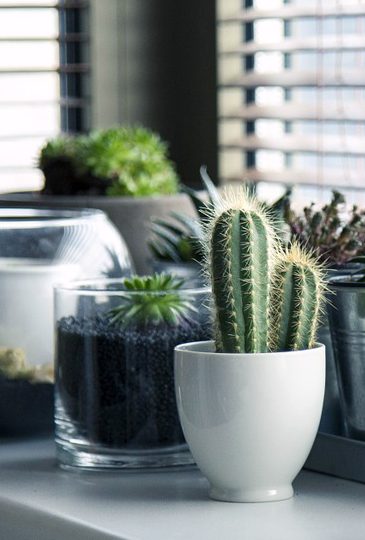Air Filter Replacement: A Guide
Rules to Replacing Your Home Air Filter
 Changing your home air system’s filters a low priority on the never-ending to do lists of many Americans. In fact, is a very rare situation that air filters are changed when they actually should be. At Air Quality Controllers, we’ve created a short guide explaining not only when you should change your filters, but why they should be changed professionally, especially in the wake of the coronavirus outbreak:
Changing your home air system’s filters a low priority on the never-ending to do lists of many Americans. In fact, is a very rare situation that air filters are changed when they actually should be. At Air Quality Controllers, we’ve created a short guide explaining not only when you should change your filters, but why they should be changed professionally, especially in the wake of the coronavirus outbreak:
Benefits of Changing Home Air Filters
Air Filters for Sale Near Milwaukee
When to Change Air Filters
Benefits of Regular Filter Changes
- Allergies: Those who suffer from seasonal allergies know exactly how miserable life can be during prime allergen season. Regular air filter changes using a quality mechanical filter can trap up to 85 percent of the dust particles floating in your home’s air. This decrease in potential irritants can greatly improve your quality of life. Ideally filters should be changed before and after the allergy season, but making sure that they are replaced beforehand is a necessity.
- Dusting: Does your home never seem to be clean of dust? Changing out your air filters drastically changes how often you have to dust your home. This is especially important if your home has hardwood floors. Different filters are better equipped different sizes of air particles, measured in microns. Smaller micron particles are considered to be the more hazardous of the two.
- Energy savings: Even if you are one of those individuals who owns a vehicle that gets 3 miles to gallon, prefers to leave every light on in your home “just because,” and smokes 5 packs per day because you believe that the hole in the ozone is a load of crap, it is hard to argue with saving a bit of money. After all, someone has to pay for all of your subscriptions to those various environmentalist magazines that you take so much pleasure in using as grill starter and black powder wadding. Regular filter changes can make your system up to 40 percent more effective. This reduces strain, leaving you with a large annual savings on energy bills.
- Health benefits: While the health hazards of residential foreign particles in the air is constantly under debate, it is hard to argue with the fact that it certainly cannot hurt your body any. Your lungs contain tiny cilia that filter out dust particles. Constant inhalation of cigarette smoke, environmental pollution, or other irritants can damage these cilia and lead to chronic lung problems. Removing all the particles in your home’s air ensures that you are breathing in clean oxygen, and your body will thank you for it.
When Should Filters be Replaced?
The answer to this question is simply “it depends.” The standard for most filters is that they should be changed every 90 days. However, there are a variety of factors which might require more or less frequent changes. For instance, you'll want to take into consideration a number of factors:
Is your home in the country?
Do you live in a city near pollutants?
Do you have pets prone to moderate to high shedding?
Do you suffer from seasonal allergies?
When you should replace your filters really comes down to what you're exposed to on a regular basis. If you live in an area where cars and smog are a normal factor in your environment, you should be changing yoru filters every 60 days to fight the air pollution. 60 days is also a good standard to follow whenever you or someone you know suffers from allergic reactions to pet dandruff.
Replacing your filters isn't just about doing "what's right", it's about taking care of your health. Air Quality Controllers is a great resource for local residents who need more information regarding air filters and where to find the best replacements when 60 days have passed. We provide air duct cleaning in Wisconsin to a number of locations.
 Air Duct Cleaning
Air Duct Cleaning
Bay View Air Duct Cleaning
Air Duct Cleaning
Brookfield Air Duct Cleaning
Air Duct Cleaning
Cedarburg Air Duct Cleaning
Air Duct Cleaning
Cudahy Air Duct Cleaning
Air Duct Cleaning
Delafield Air Duct Cleaning
Air Duct Cleaning
Elm Grove Air Duct Cleaning
Air Duct Cleaning
Fox Point Air Duct Cleaning
Air Duct Cleaning
Franklin Air Duct Cleaning
Air Duct Cleaning
Hartland Air Duct Cleaning
Air Duct Cleaning
Kenosha Air Duct Cleaning
Air Duct Cleaning
Menomonee Falls Air Duct Cleaning
Air Duct Cleaning
Mequon Air Duct Cleaning
Air Duct Cleaning
Milwaukee Air Duct Cleaning
Air Duct Cleaning
Mukwonago Air Duct Cleaning
Air Duct Cleaning
Muskego Air Duct Cleaning
Air Duct Cleaning
New Berlin Air Duct Cleaning
Air Duct Cleaning
Oak Creek Air Duct Cleaning
Air Duct Cleaning
Pewaukee Air Duct Cleaning
Air Duct Cleaning
Racine Air Duct Cleaning
Air Duct Cleaning
River Hills Air Duct Cleaning
Air Duct Cleaning
Shorewood Air Duct Cleaning
Air Duct Cleaning
South Milwaukee Air Duct Cleaning
Air Duct Cleaning
Sussex Air Duct Cleaning
Air Duct Cleaning
Waukesha Air Duct Cleaning
Air Duct Cleaning
Wauwatosa Air Duct Cleaning
Air Duct Cleaning
West Allis Air Duct Cleaning
Air Duct Cleaning
West Bend Air Duct Cleaning
Air Duct Cleaning
Whitefish Bay




